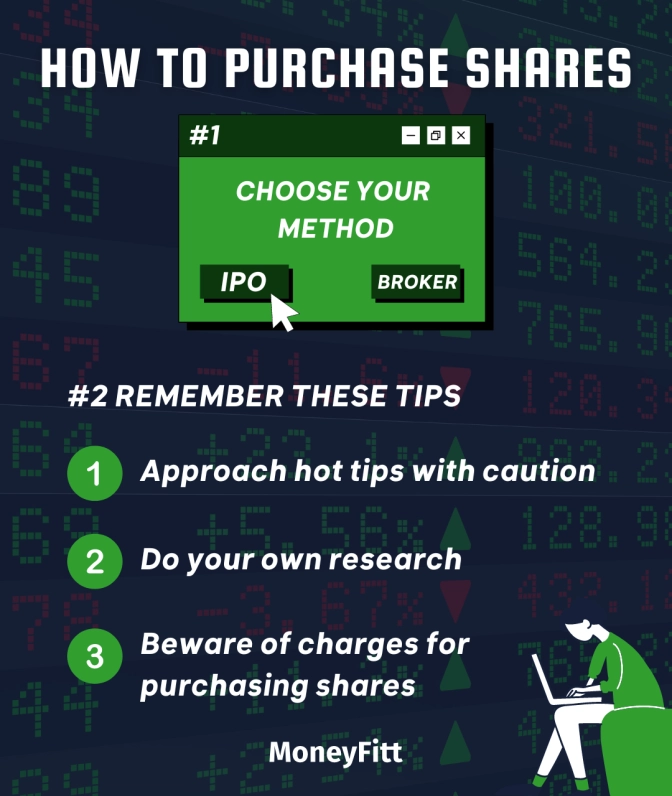How to Purchase Shares and Invest in the Stock Market
Gone are the days of receiving a paper share certificate to prove you own shares in a specific company!
- The first opportunity to acquire the shares of a newly listed company is through its Initial Public Offering (IPO). However, the most common way of purchasing shares is using the services of a broker for companies listed on local and international exchanges.
- Before purchasing shares, remember to approach hot tips with caution and DYOR... Do Your Own Research!
- You will need a trading account with a broker, which allows you to trade shares on the stock market.
How to Purchase Shares Yourself
The first chance to purchase shares is through an Initial Public Offering (IPO). This involves the company's ownership being divided into shares for the first time, which are offered to the public. After the shares are issued, the general public can purchase them through the stock market.
The most common way of purchasing shares is using the services of a broker for companies listed on local and international exchanges.
Buying and selling shares in a company listed on a stock exchange is a relatively straightforward procedure. Usually, shares are traded in "lots" or "board lots" of 100 – meaning a share priced at $1 will require a $100 investment for one lot of 100 shares (excluding commission and fees). However, this is changing quickly, with more shares traded in single share lots and more opportunities to buy fractions of certain shares.

Before purchasing shares:
- Approach ‘hot tips’ about shares with caution
- Familiarise yourself with the companies you wish to invest in, including when you’re engaging in an IPO. You can find information on the company’s and stock exchange websites (and, of course, in many places online).
- You will need a trading account with a broker, which allows you to trade shares on the stock market
- There are charges for purchasing shares. These could include a brokerage commission by your stockbroker (usually based on a % of the invested amount), local taxes and an exchange trading access fee. Note that the "commission-free" trading offered nowadays in some markets does not mean the broker is not making money from you in some other ways!
After your original investment, look out for company announcements on corporate actions which may affect you as a shareholder. You should also track changes in the most relevant economic indicators for that company.
HOW TO PURCHASE SHARES. COMPLETED. ✅
Sources:
1. Header photo by Pexels
